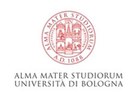
CIRSFID - ALMA AI
UNIBO coordinated all units’ work related to the LAILA WPs. The team has developed Legal Analytics (LA) technologiesfor legislative and judicial texts. It has set up the toolbox for all LA tasks in both research strands (WP2-T1). In LA for legislation, UNIBO has reviewed the state-of-the-art methodologies and techniques. The methodology selected involves legal documents serialised in the AkomaNtoso XML standard. AI techniques have been evaluated for text similarity, clustering, and correlation (WP2-T2). Constitutional Court’s decisions have been selected as legal sources and different LA objectives defined (WP3-T1). Various results have been accomplished (e.g., detection of potentially unconstitutional laws using Court’s decisions; clustering unconstitutional provisions for detecting hidden correlations (WP3-T2). In LA for case law, a number of machine learning NLP architectures have been identified for initial experiments. UNIBO has worked with UNIPV to formulate methodologies and XML guidelines for tagging courts’decisions in the domains selected (i.e., intellectual property and unfair competition, and tax law) (WP2-T3). Fortagging, UNIBO has dealt with courts’ tax law decisions (WP4-T1). In LA for social data (WP2-T4), some experiments have been conducted for judgment outcome forecasting. Human rights issues in LA have been examined (WP1-T3).Finally, UNIBO created the LAILA website (WP7-T4).

Beneficiary
UNINA has collected socio-legal data from legal decisions in 2 specific fields: family law and immigration law (WP5-T1).In the former, data mainly involves parties’ age, children (if minors or not), house, spouses’ incomes; in the latter,countries of origin, immigrants’ age, sex, ethnicity, road map, legitimate reason given for escape. UNINA has coordinated with UNIBO to discuss the technologies and methods (WP2-T4) for outcome forecasting (WP5-T2).

Beneficiary
UNIPV has collected courts’ decisions in IP law and unfair competition, and prepared the documents for tagging (WP4-T1). With UNIBO methodologies have been discussed and tagging guidelines laid down in updated versions (WP3-T1). A discrete quantity of decisions (~70) has been tagged and shared with IT experts (WP2-T3). During these activities, legal and conceptual findings have arisen and been disseminated in seminars with text mining experts (WP7-T4).

Beneficiary
UNITO has reviewed international publications and institutional documents on LA applications (WP1-T1) to map epistemological (WP1-T2) and ethical/legal issues (WP1-T3). UNITO has studied management/processing of scientific research data within the EU legal framework on data protection. The review focused on anonymization and pseudonymization under the GDPR. This provides the basis for the data protection impact assessment of the project (WP1-T4).